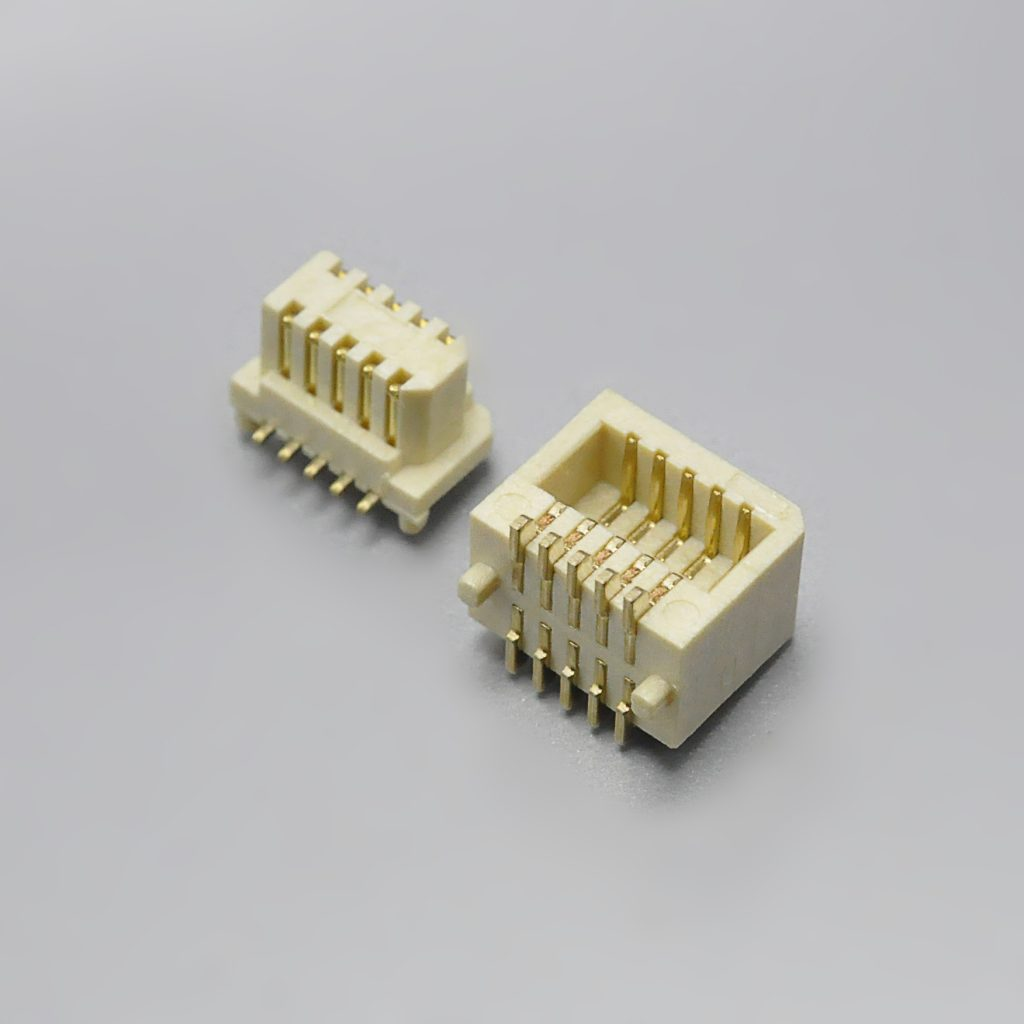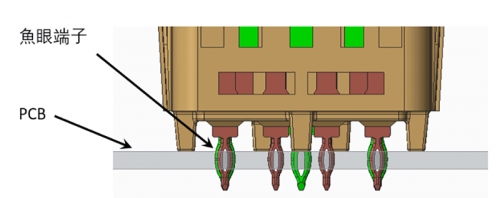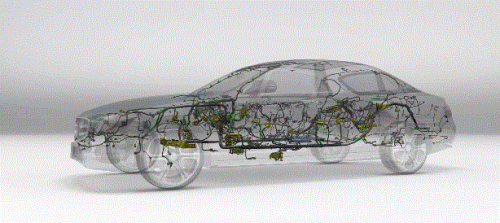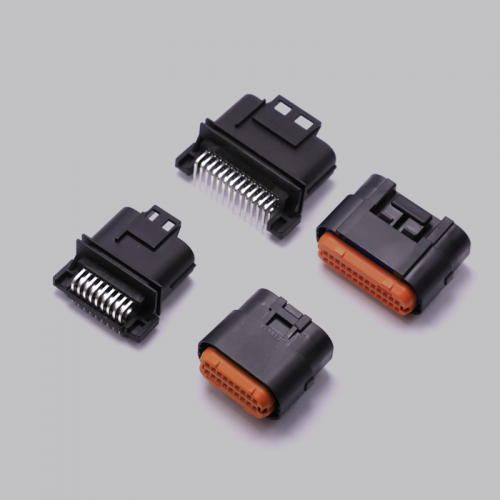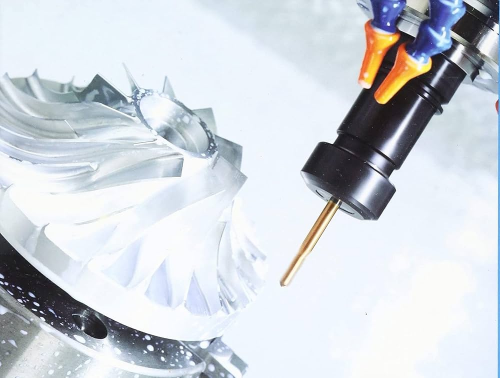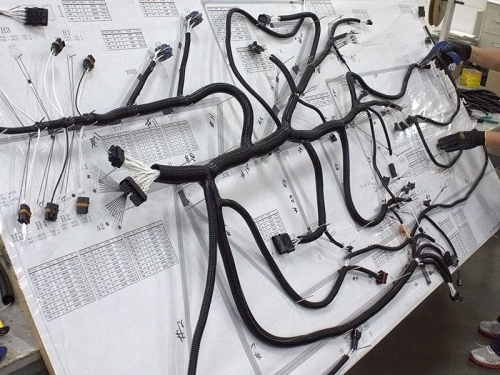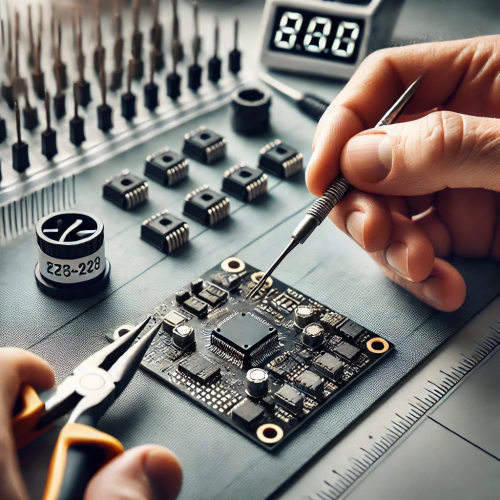What types of rectangular connectors are there?
According to production standards, rectangular connectors are mainly of the following types:
- In the past, CA, CB, and CD rectangular connectors were mainly produced by enterprises under the Ministry of Electronics Industry.
- Currently, the most widely used ones are CH-type rectangular connectors produced by the Ministry of Electronics and other enterprises.
- J-type rectangular connectors are mainly produced by companies affiliated with the Ministry of Aeronautics and Astronautics.
- Rectangular connector produced according to national military standards (GJB).
- Rectangular connectors produced in accordance with the International Electrotechnical Commission (IEC) standards.
In addition, according to the performance and structural characteristics, there are non-sealed type, sealed type, high and low pressure mixed type, high and low frequency mixed type, etc.
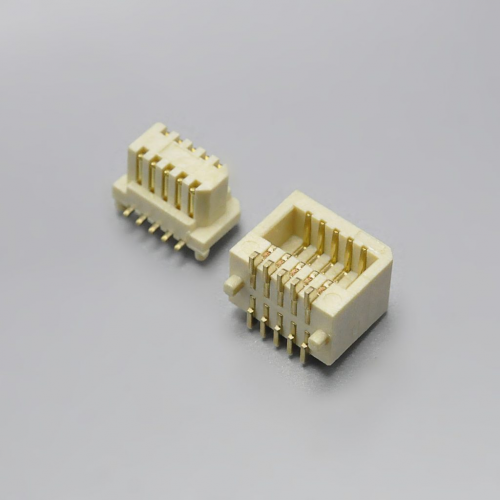
What are the three types of rectangular connector shells?
In terms of the classification of rectangular connector shells, there are generally three types:
- Aluminum cooler housing
The rectangular connector of this shell has a variety of pitch products, and the common specifications are 9.15mm and 1.27mm pitch products.
- Full plastic shell
The housing’s rectangular connectors are also available in a variety of pitches.
- Extending Shell
The rectangular connector of this shell not only has a variety of specifications and spacings to choose from, but can also be differentiated according to customer needs, providing customers with considerable convenience.
What is the difference between rectangular and circular connectors?
Differences in structural form
Rectangular connectors: Rectangular connectors usually have a square or rectangular appearance shape with right-angled edges and usually have multiple pins or pins for making electrical connections, while the connector itself is shaped like a socket.
Circular connector: The circular connector is circular or semicircular in shape, has no right angles, and usually has pins or pins arranged in a ring for electrical connection.
Differences in usage
Rectangular connectors: Rectangular connectors are often used in scenarios that require high-density connections or various signal transmissions, such as circuit board connections for electronic equipment, computer interfaces, industrial automation equipment, etc.
Circular connector: Circular connectors are usually used in situations that require waterproofing, dustproofing, impact resistance, high reliability, and harsh environmental conditions, such as aerospace vehicles, military equipment, medical equipment, etc.
Characteristics Difference
Rectangular connector: Rectangular connectors generally have higher connection density and can support more pins or pins. They are generally easy to plug, unplug, wire and repair, and can meet high signal transmission requirements.
Circular connectors: Circular connectors are usually better protected and can provide better waterproof, dustproof, anti-collision and anti-corrosion performance. They are usually simple in design, rugged and reliable, suitable for long-term operation in harsh environments.
To choose the appropriate connector type according to the specific application scenario and needs, rectangular connectors and circular connectors have different advantages and characteristics.
How to choose a rectangular connector?
- Check whether the connector surface is flat, free of cracks, bubbles, etc. A good rectangular connector should have a neat appearance, a smooth surface, and no obvious scratches and wear. If there are any, it means that there are problems with the quality and production process of the connector, and it is not recommended to buy it.
- Carry out a connection test to directly check the stability and reliability of the connector to ensure that the connector we purchased can indeed be used and there are no other problems.
- Test the performance and electrical parameters of the connector using professional testing equipment.
- Check the material of the connector. A good rectangular connector should be made of high-quality copper and environmentally friendly plastic, which can ensure the electrical performance and durability of the connector.
- Check whether the contact points of the connector are unobstructed and whether there is obvious oxidation and corrosion. This is to ensure the conductive performance of the connector. If so, it is not recommended to purchase.
- Understand the manufacturer of the connector, and see how reputable and experienced the other party is in the industry, whether they are trustworthy, whether they can accept field inspections, etc. Finding a reliable manufacturer in the purchase and subsequent cooperation can save us a lot of energy and money, and reduce a lot of unnecessary troubles.
What are the precautions when using rectangular connectors?
- To ensure reliable product connection, please make sure the connector is well connected during use. If any abnormality is found during insertion, do not force insertion.
- The connector is not plugged in or locked tightly, so power cannot be supplied.
- The derating of the main technical parameters of the product should be clarified according to different application conditions (refer to the rectangular connector product sample manual) to improve the reliability of use.
- For applications with frequent plugging and unplugging, you can choose a converter, transfer cable or anti-sharpening connector as needed.
- For connectors that need to be soldered, avoid damage to the connector due to excessively high soldering iron temperature or excessively long soldering time.
- When placing, the connectors should be plugged in or dust covers should be installed.
- The accessories of the connector should be installed using the matching installation tools to avoid damage to the screws or nuts due to excessive torque. When the installation accessories need to be prevented from loosening, it is recommended to take necessary measures to prevent loosening (such as installing elastic washers, etc.).
